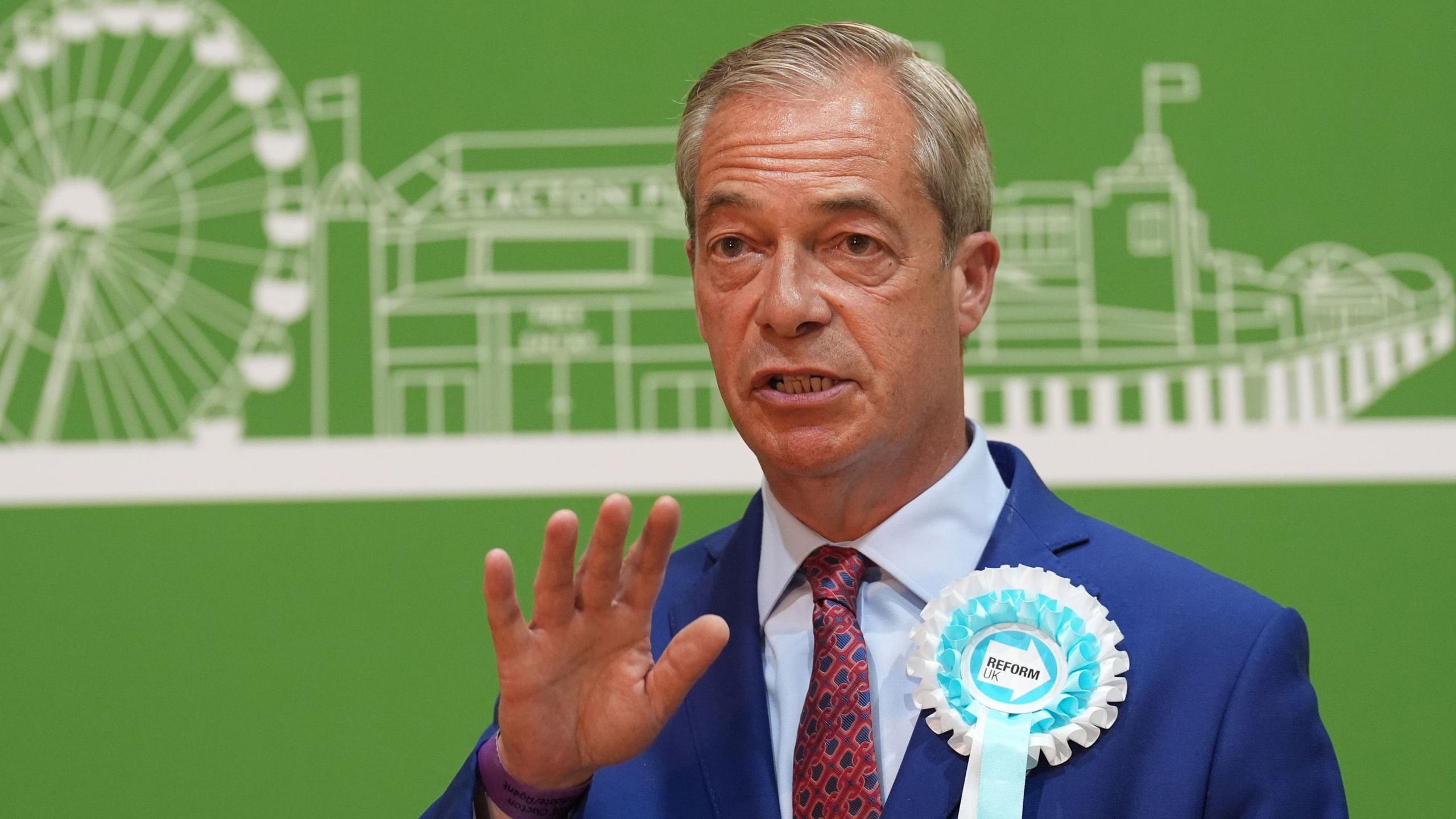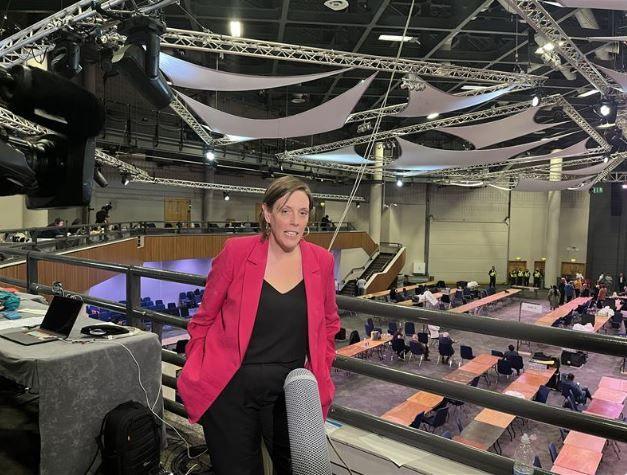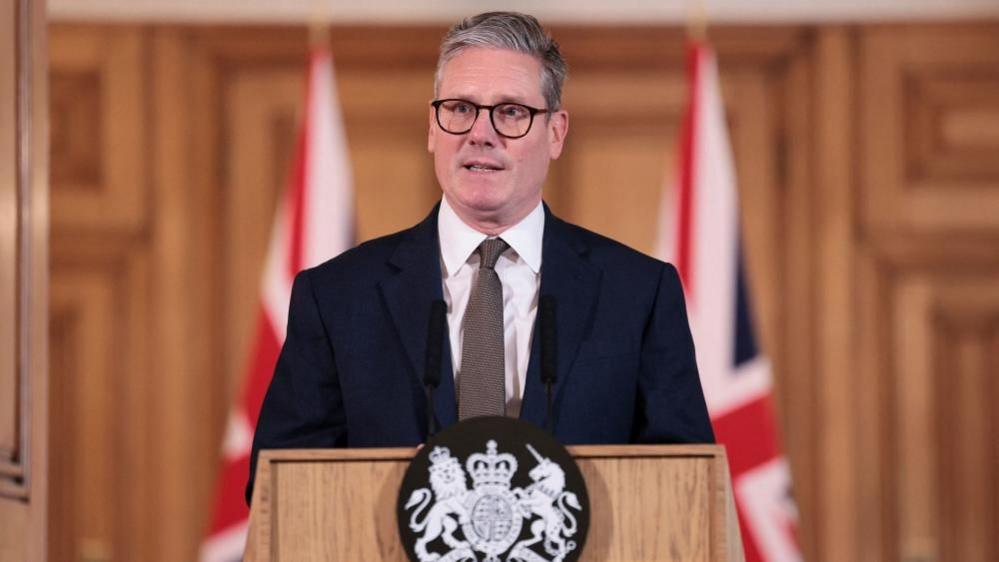City's scepticism in aftermath of Labour wins
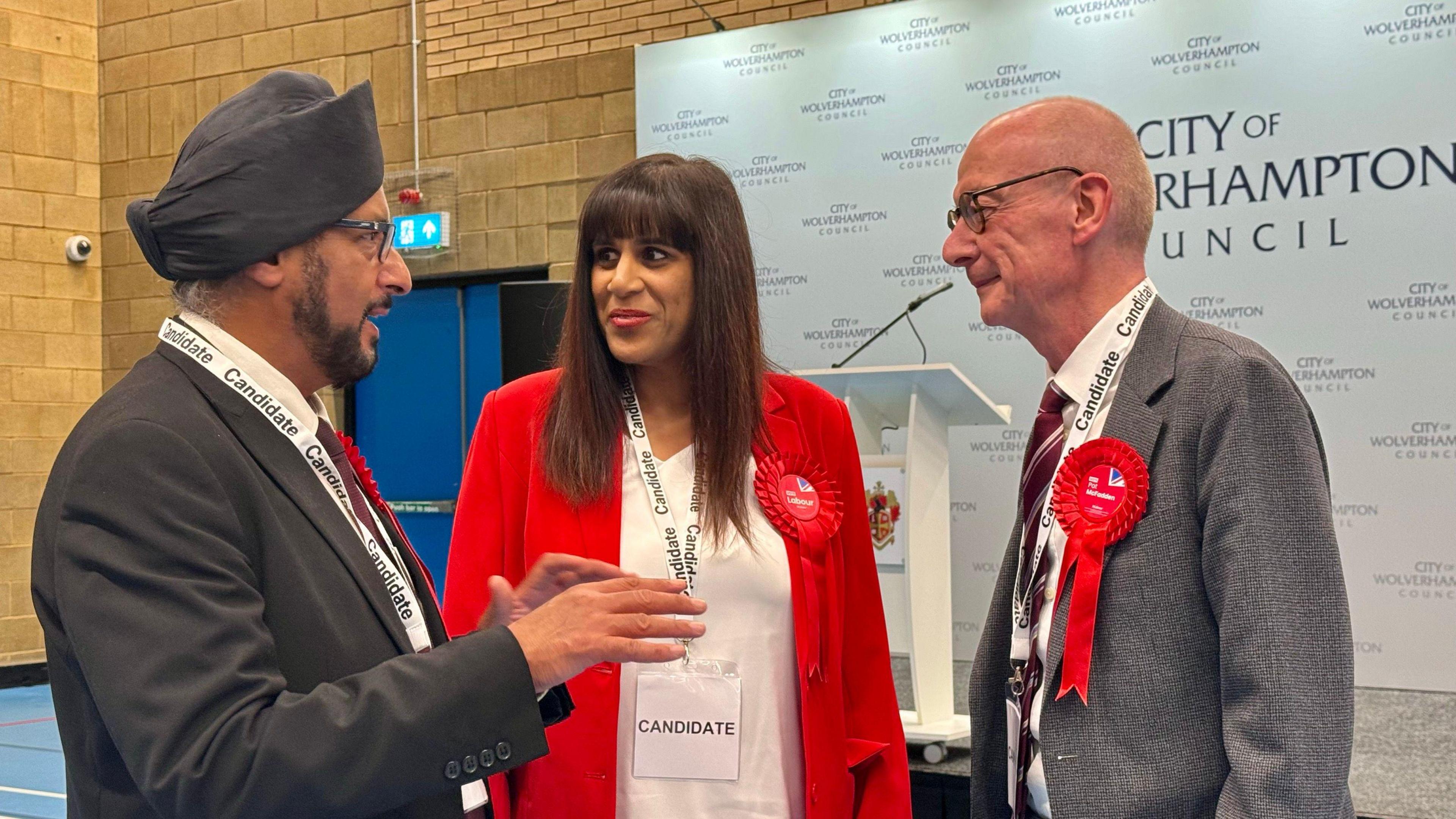
All three Wolverhampton constituencies now have Labour MPs
- Published
As the sun rose on Friday, Wolverhampton woke up to Labour victories in all three of its constituencies after two of them were won by the Conservatives in 2019.
Wolverhampton was a key battleground in the lead up to polling day as Labour sought to reclaim dominance in what had been a traditional stronghold for their party until the previous election.
However voter turnout was notably down in all three constituencies - most strikingly in Wolverhampton West where turnout was down by 11.3%.
While the city is now completely red, with Warinder Juss and Sureena Brackenridge joining Pat McFadden as Labour MPs, the number of votes for Labour were actually lower in two of the three constituencies compared to the 2019 election.
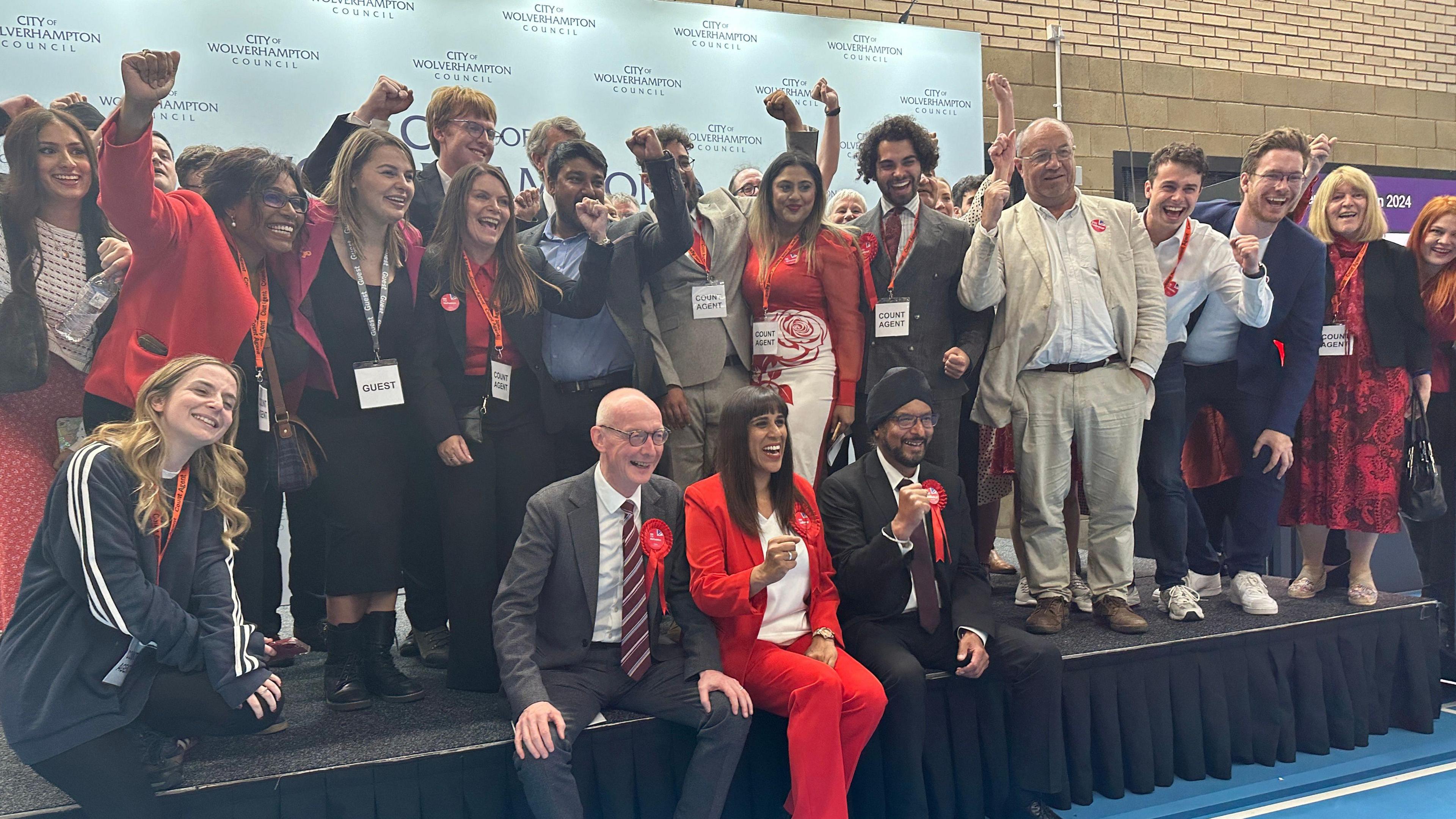
Pat McFadden, Sureena Brackenridge, and Warinder Juss (front of stage, left to right) celebrated their victory
In Wolverhampton West, Warinder Juss won with 19,331 votes - fewer than the 23,197 Labour achieved in 2019 when they lost to the Tories.
Pat McFadden held on to his seat in Wolverhampton South East, an area which has elected a Labour MP at every general election since 1945, but with a reduced majority.
In Wolverhampton North East, Sureena Brackenridge ousted Jane Stevenson but her total number of votes this time were only slightly more than Labour's total in 2019, when Stevenson was elected for the Tories.
Labour votes in the city have either stagnated or fallen compared to five years ago with the party's wins in this election thanks to the plummeting Tory votes in the city.
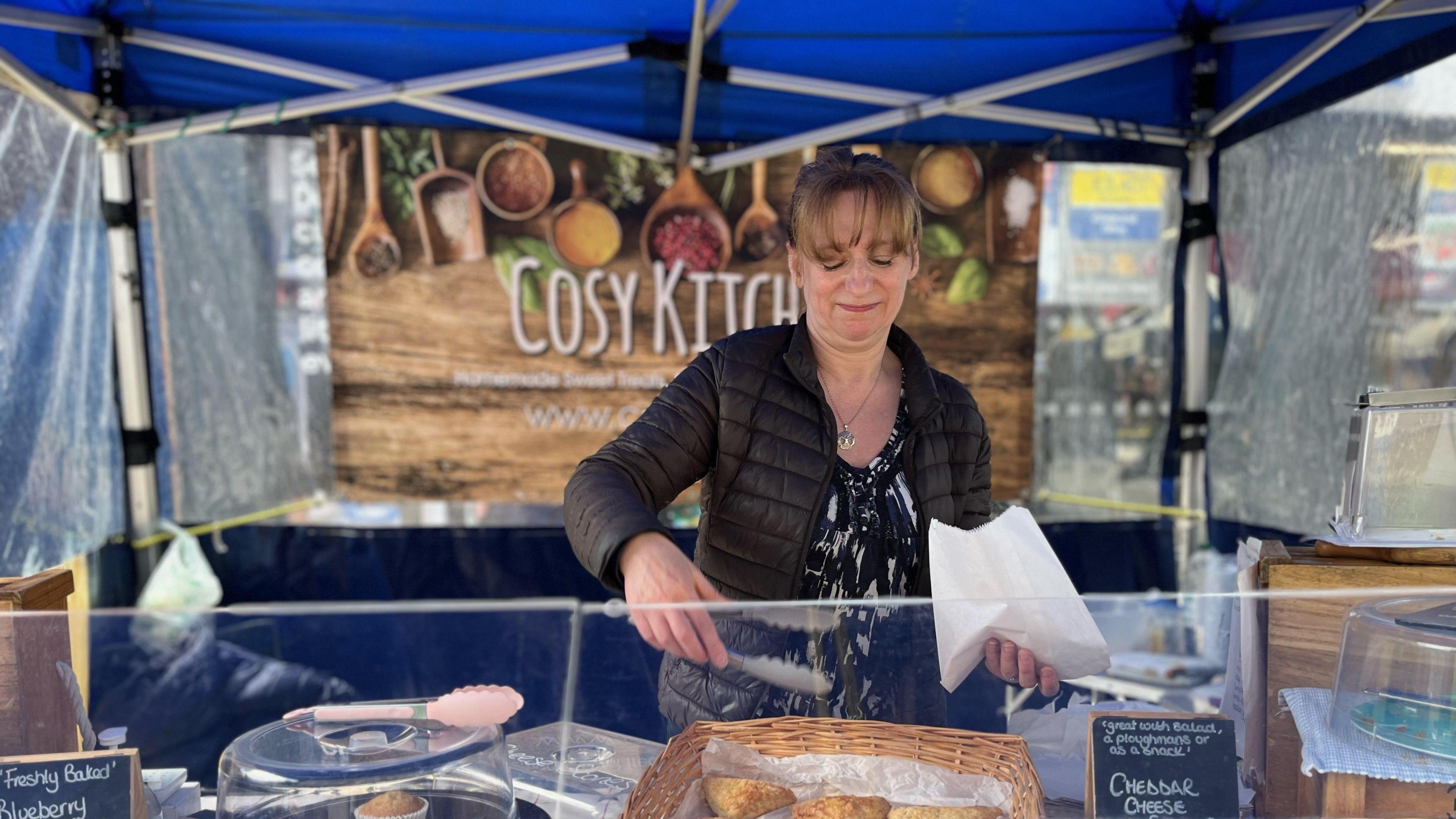
Anne Pyatt voted Labour but said she still felt apprehensive about the future
In the aftermath of the election the BBC spoke to voters in Wolverhampton, many of whom were sceptical about the future - even residents who had voted Labour.
Rav Chandar told the BBC he had voted Labour reluctantly this time and his wife Jaz Chandar did not vote.
"It's not exactly because I wanted to," he said, "but I'm guessing more of a majority support [them] so I went along with them.
"It is what it is, we've just got to see."
At the market, Anne Pyatt runs a home baking stall selling cakes and brownies.
She said she was pleased with the result but did feel a bit apprehensive.
"I voted Labour but you just don’t know how things are going to go," she said.
"It always seems like when we get a new government it’s all right for a few years then it starts to go pear-shaped."
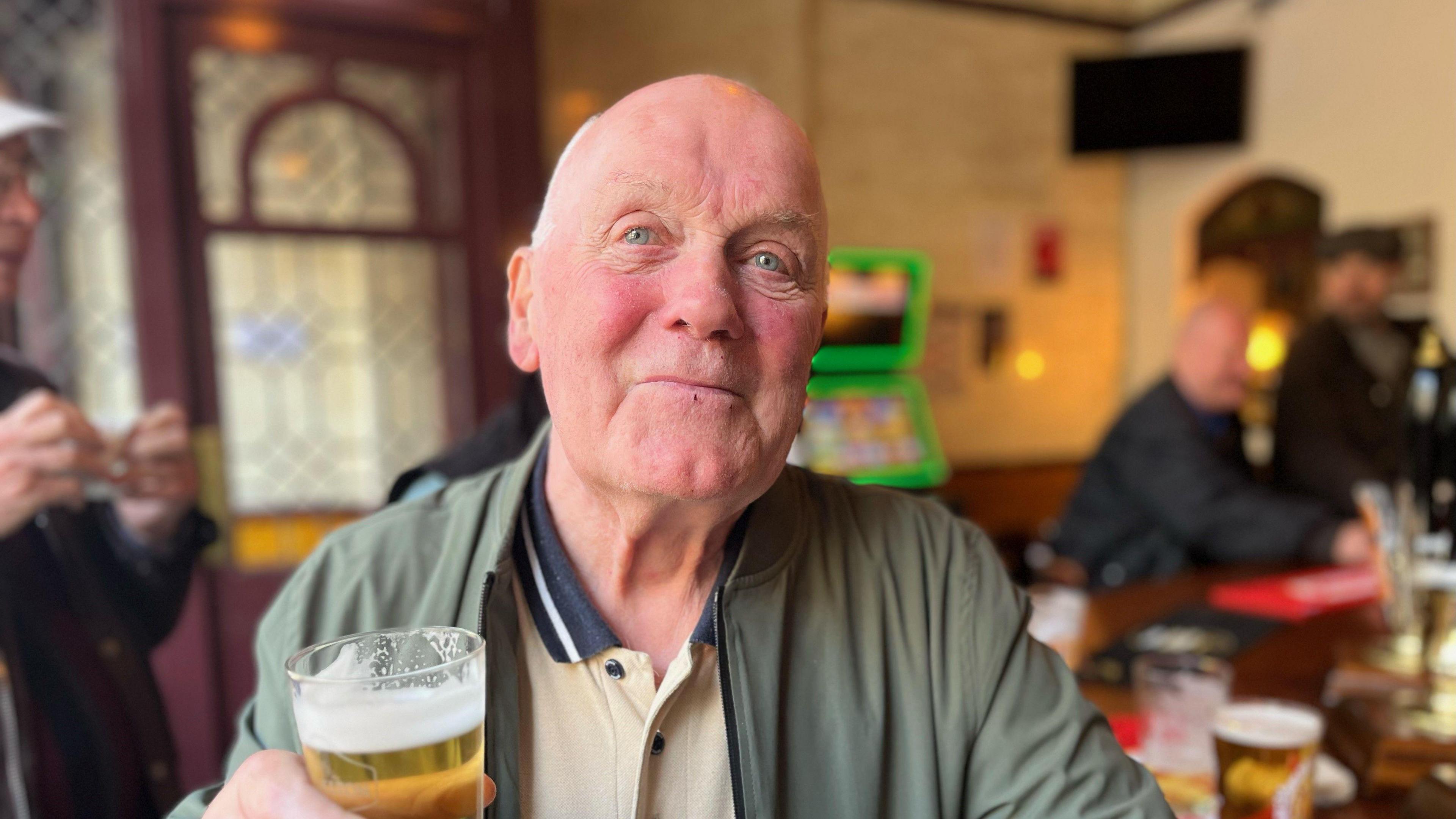
Alan Jackson voted for Reform after a lifetime of voting Labour
One Tory voter, Jimmy Singh, owner of Jack's Cafe, said: "I voted Conservative. Obviously we knew Labour was going to win.
"My concern was they're going to put minimum wage up which is all right but [when] minimum wage goes up, everything else is going to go up."
Reform UK came second in Wolverhampton South East, a constituency where 71% of voters in the Brexit referendum voted Leave.
In Wolverhampton North East, where the same percentage of voters had voted Leave, Reform came third with 1,100 votes fewer than the Conservatives.
Graham Wood told the BBC he had voted for Reform, rejecting the idea that it was a protest vote and a one-off.
"Why shouldn't we have a change? The Tories and Labour promise everything, we never get it," he said.
"They're gonna say taxes won't go up but they will go up. We will be taxed."
Alan Jackson, who had voted Labour ever since he was able to vote, believed the country needed an alternative to Labour and the Conservatives so he voted for Reform.
“I’m not a great fan of Keir Starmer and I don’t think they are going to do anything about one of the biggest things, immigration," he said.
Follow BBC Wolverhampton & Black Country on Facebook, external, X, external and Instagram, external. Send your story ideas to: newsonline.westmidlands@bbc.co.uk, external
Related topics
- Published5 July 2024
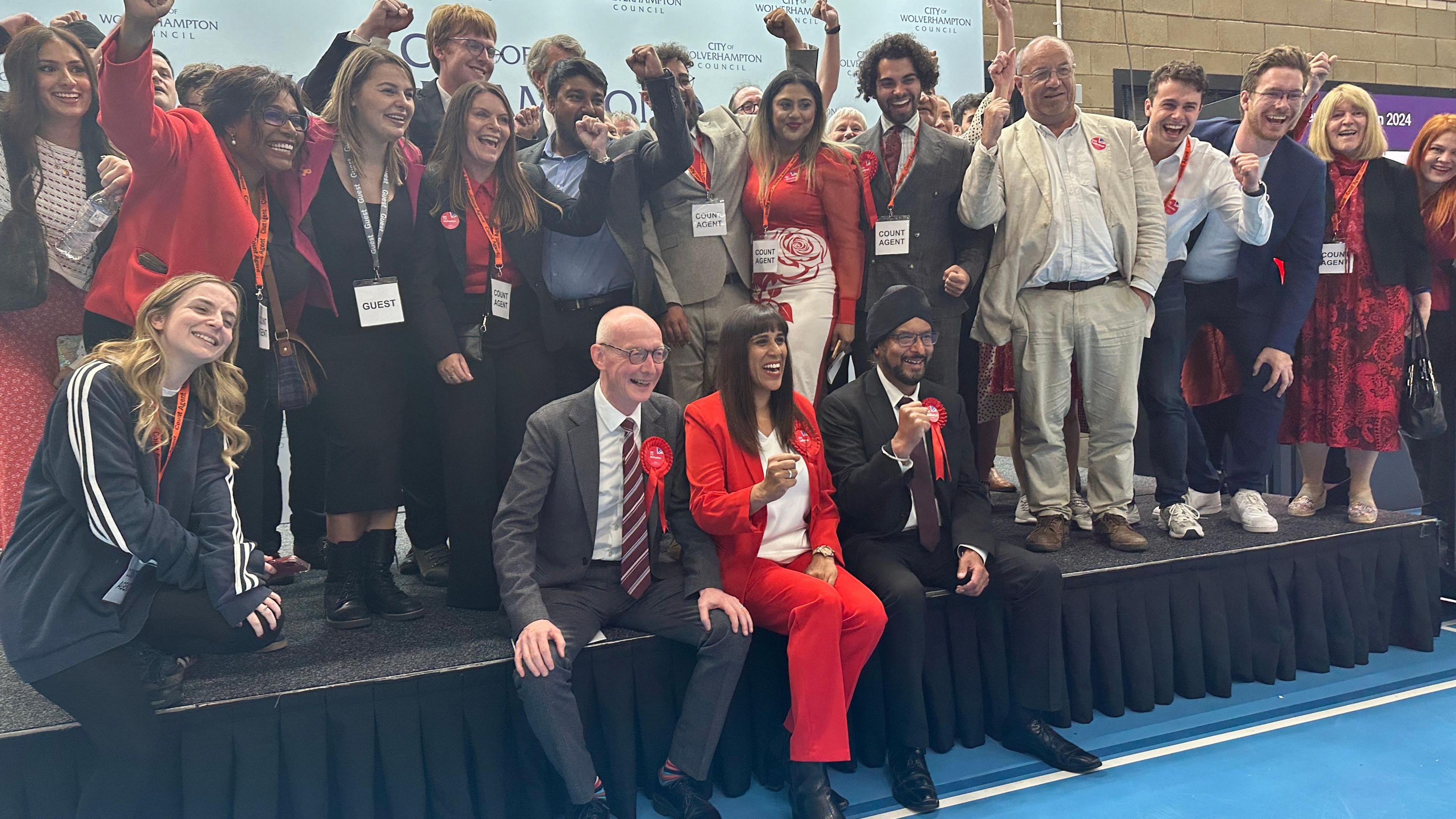
- Published5 July 2024
